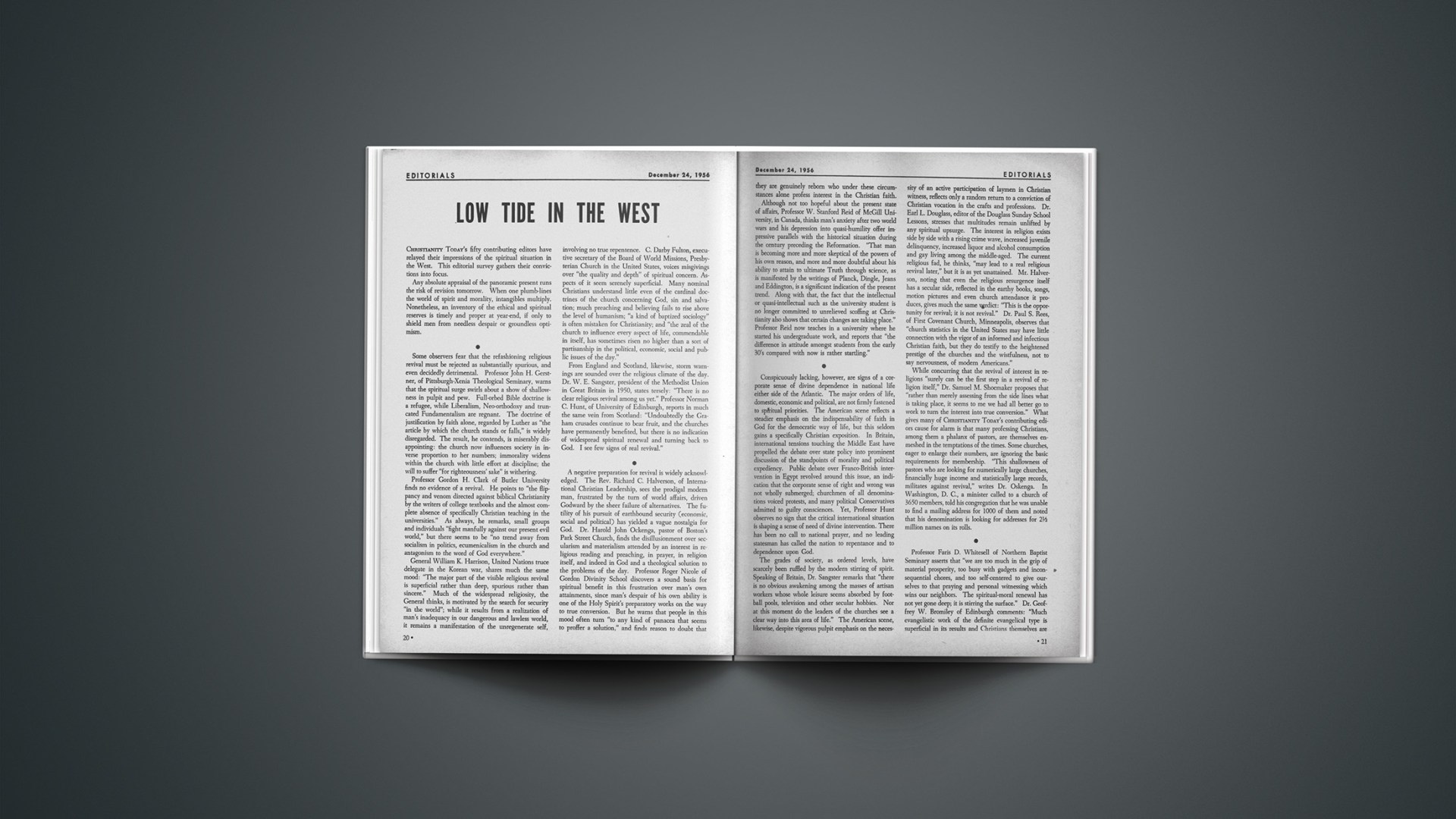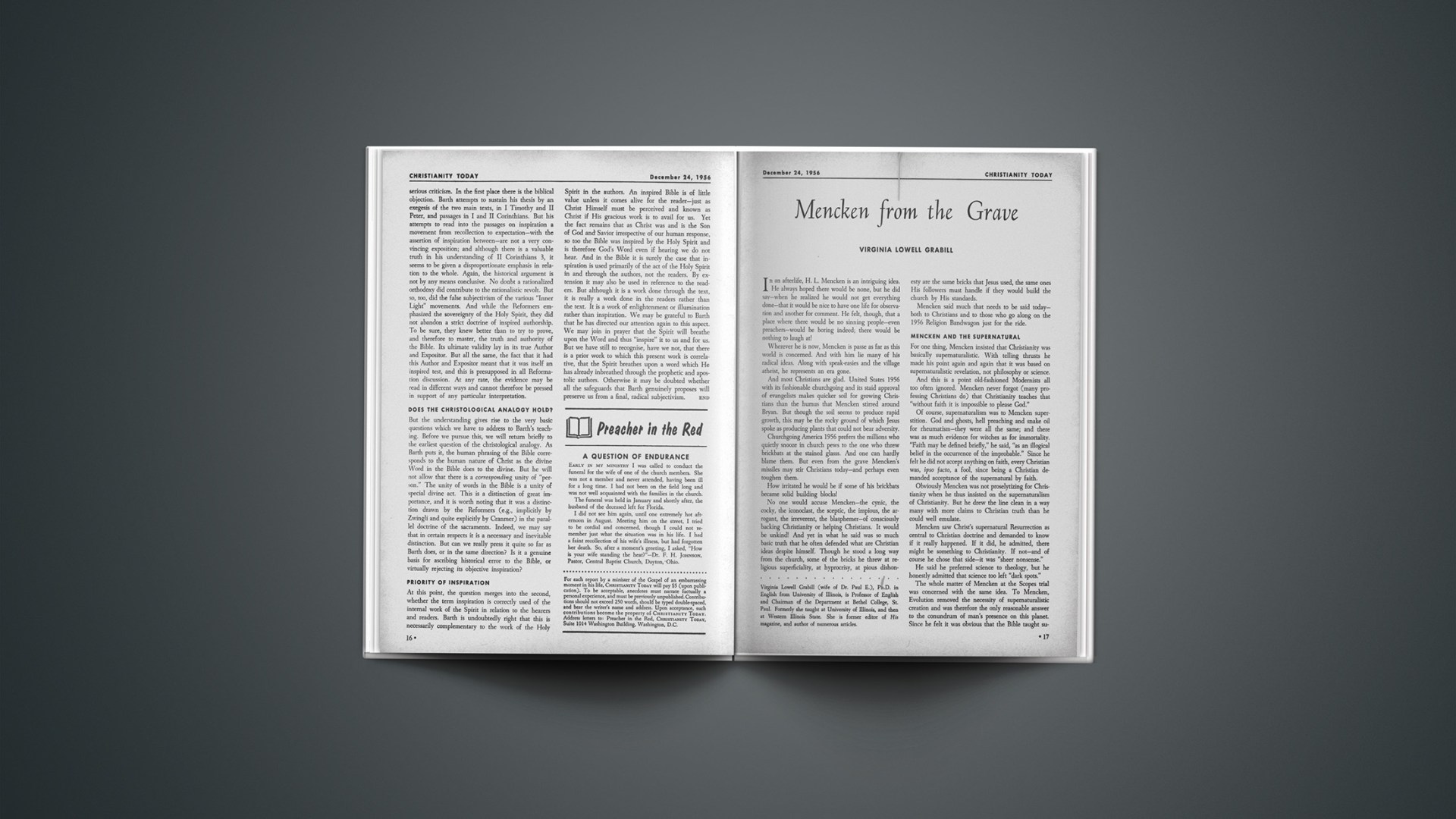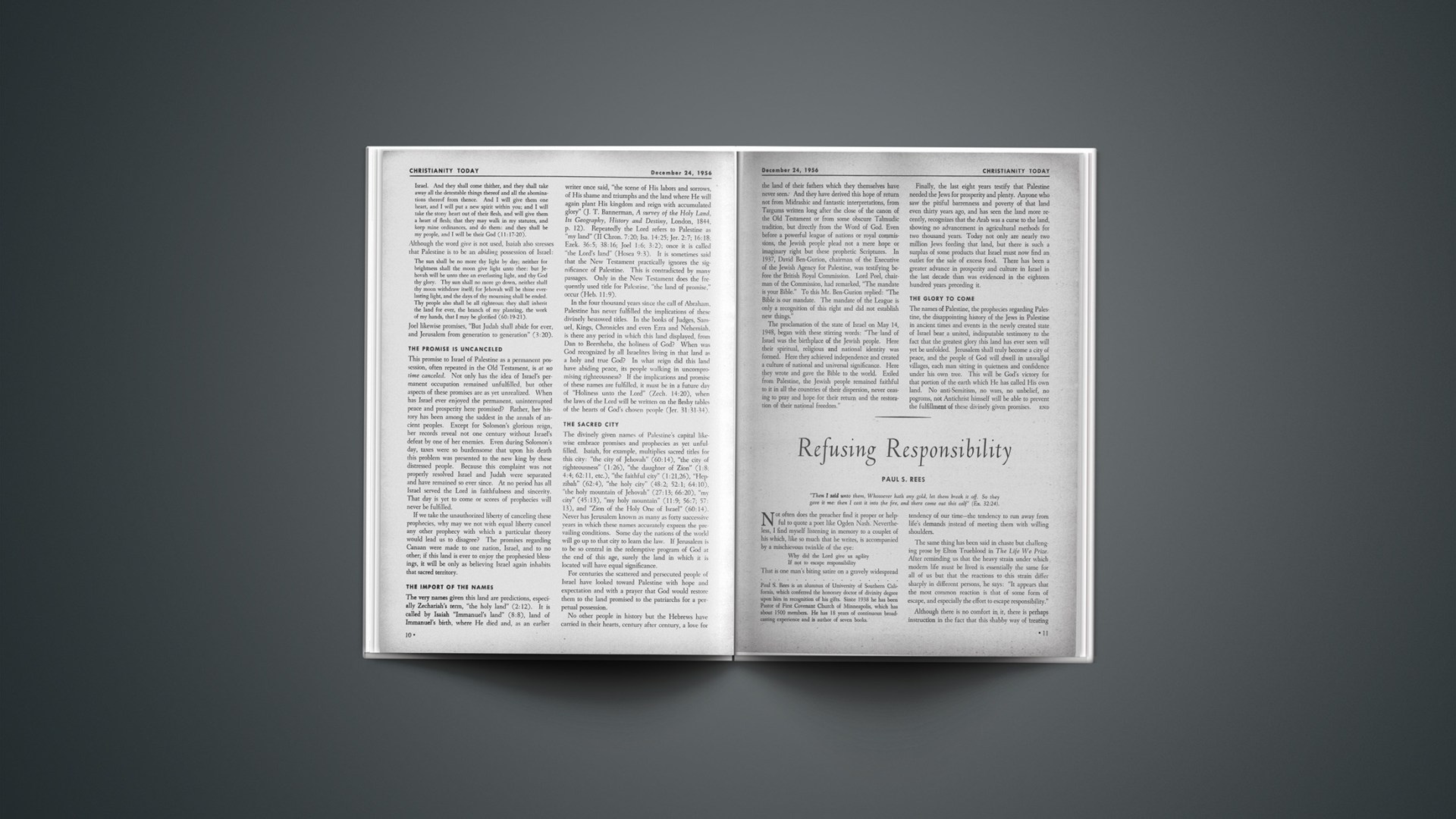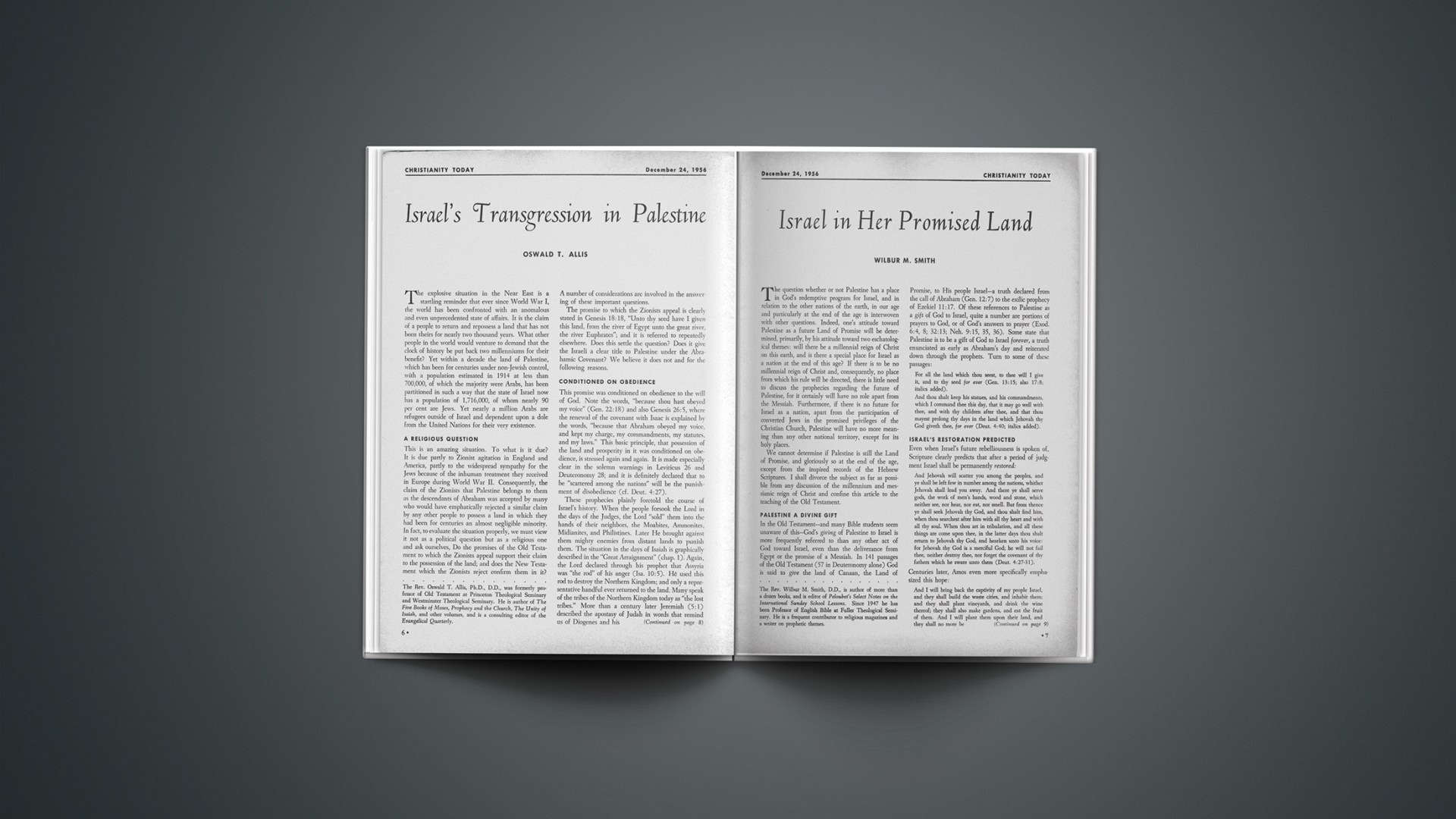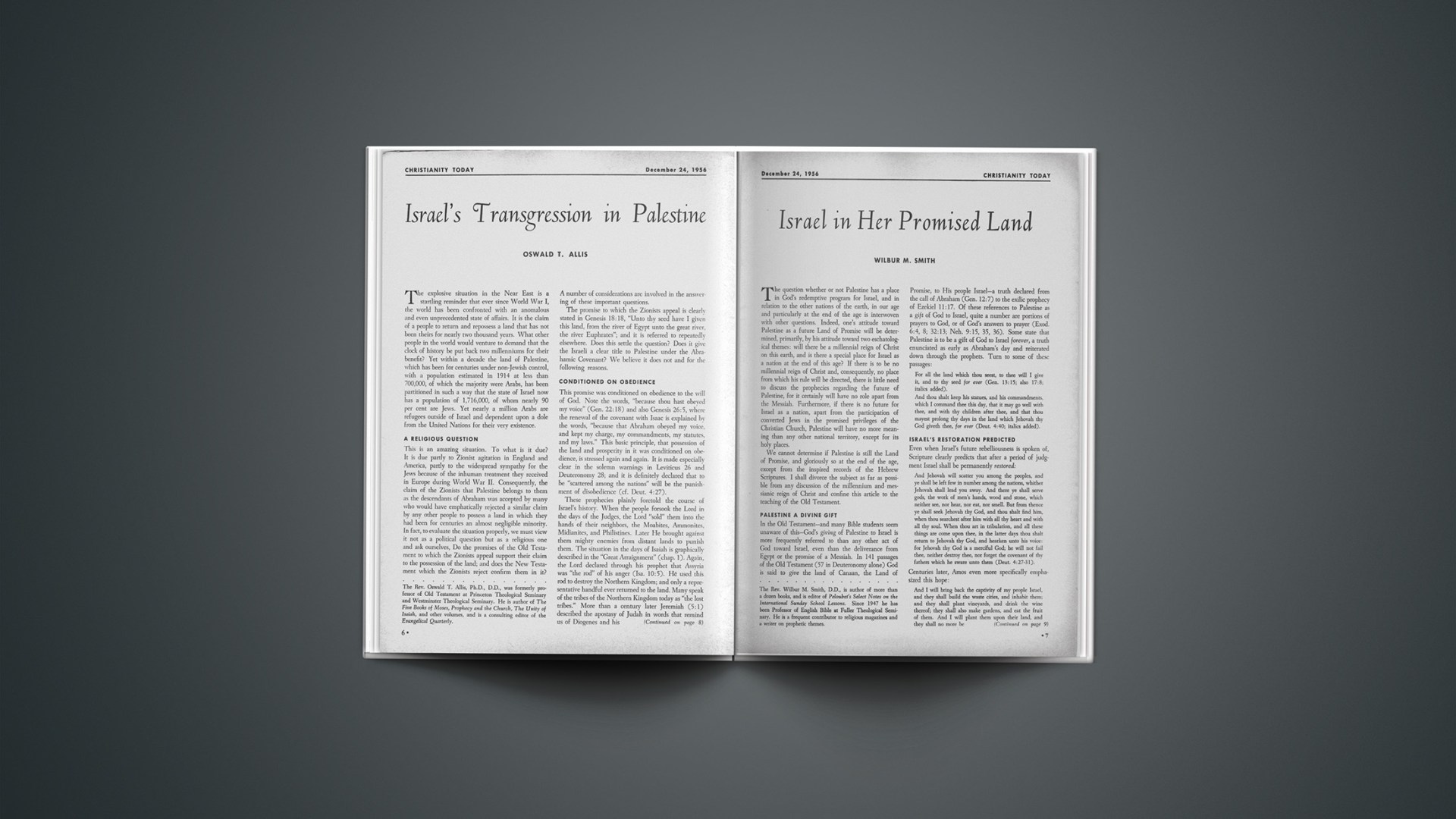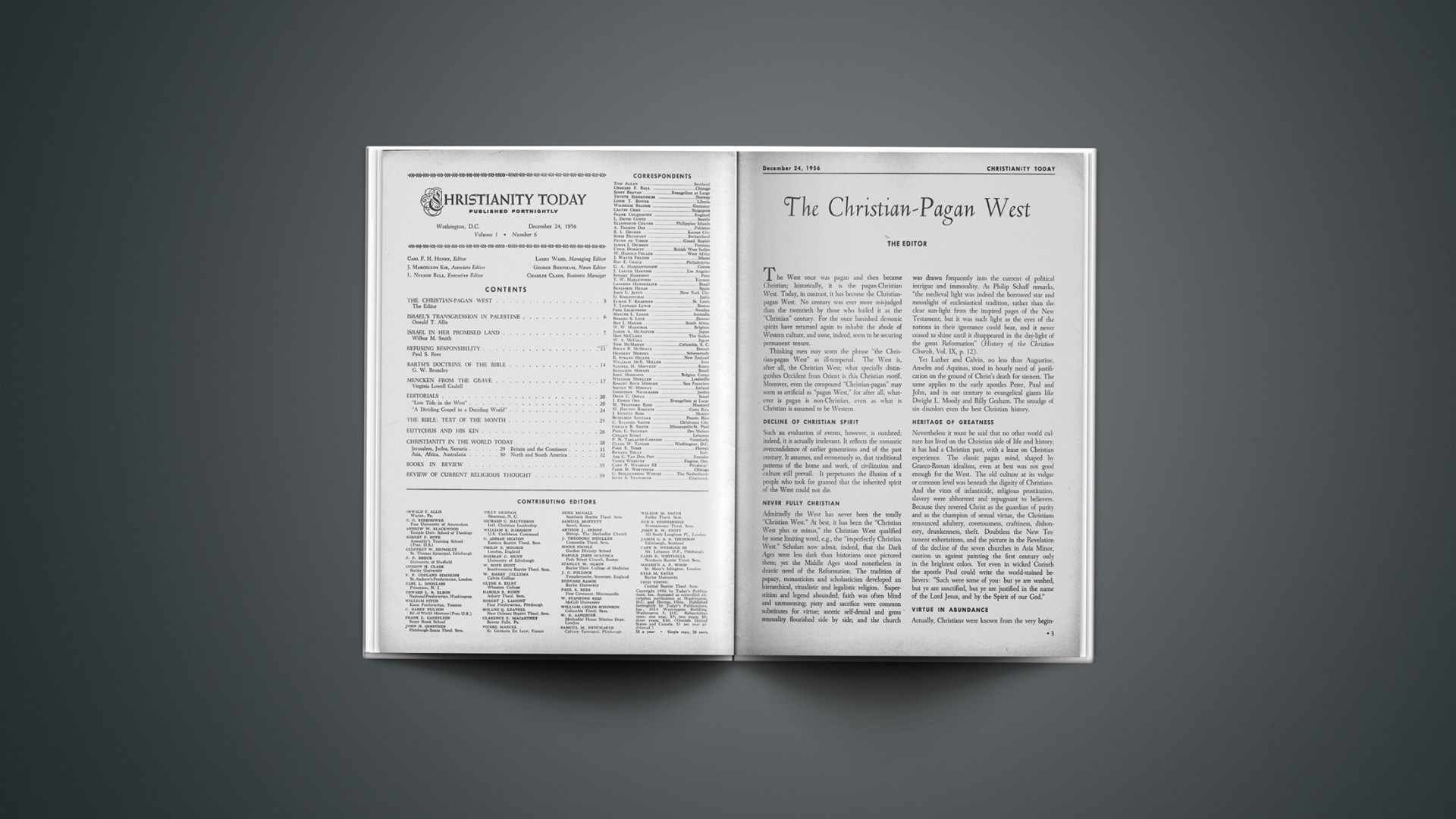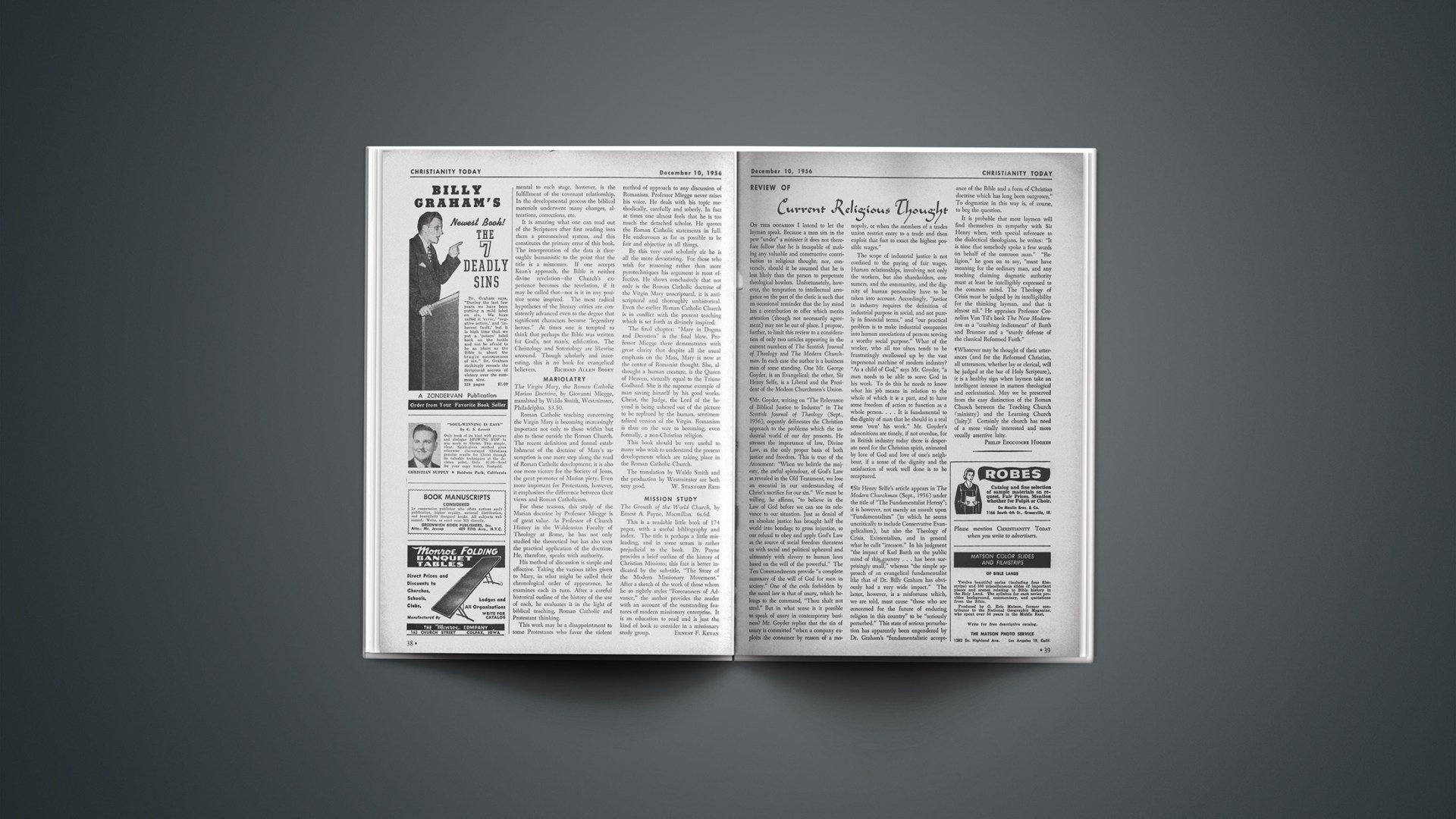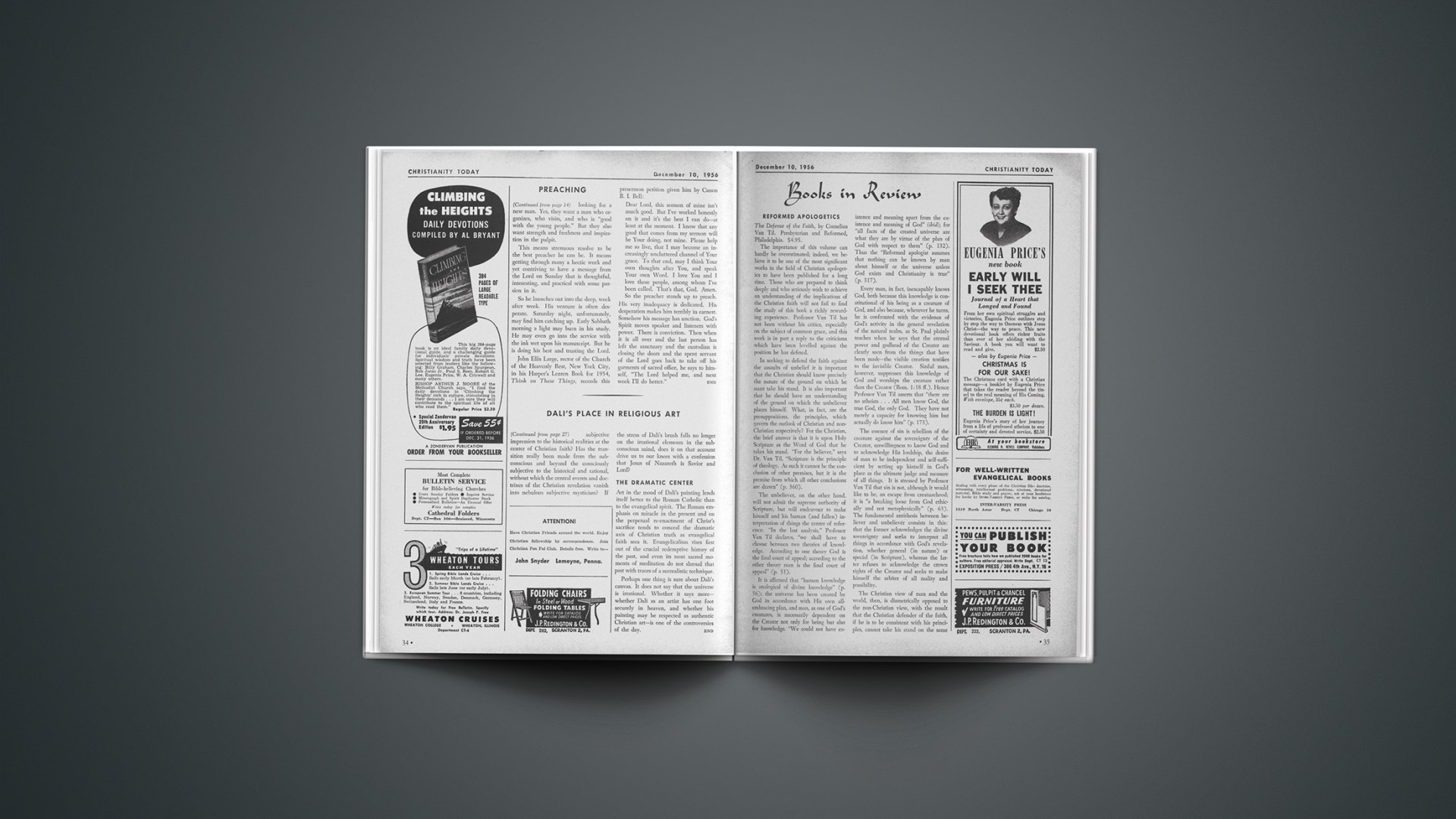Therefore if any man be in Christ, he is a new creature: old things are passed away; behold, all things are become new (2 Cor. 5:17).
Therefore—As if he should have said, Will you have the reason why that I know nothing any more after the flesh; no, not even Christ himself? It is because I am a new creature, that is the reason of it. I have had a new principle wrought in my understanding, by which all my thoughts are turned; all my former thoughts perish, as a man’s doth when he dies.—RICHARD SIBBES.
The work of grace is wholly supernatural; it is a creation, and a creation-work is above the power of the creature. No power but that which gave being to the world, can give a being to the new creature: Almighty Power goes forth to give being to the new creature. This creature is not born of flesh, or of blood, nor of the will of man (John 1:13).—JOHN FLAVEL.
Some say, “It denotes no more but a new course of life, only the expression is metaphorical. A new creature is a moral man that hath changed his course and way; for if he were always a moral man, and was never in any vicious way or course, then he was always a new creature.” This is a good gospel, at once over-throwing original sin and the grace of our Lord Jesus Christ! This turning all Scripture expressions of spiritual things into metaphors is but a way to turn the whole into a fable, or at least to render the gospel the most obscure and improper way of teaching the truth of things that ever was made use of in the world.—JOHN OWEN.
In Christ
To be in Christ, it is not enough that we have been baptized into the Christian faith, that we bear the Christian name, and have assumed a profession of the Gospel; we must be vitally united to him through faith, by which the merits of his death are imparted to our souls. By this means also, the principle of spiritual life is maintained.—WILLIAM LOTHIAN.
To be in Christ is the common scriptural phrase to express the saving connection or union between him and his people. They are in him by covenant, as all men were in Adam; they were in him as members of his body, through the indwelling of his Spirit; and they are in him by faith, which lays hold of and appropriates him as the life and portion of the soul.—CHARLES HODGE.
Whatever is wrought in believers by the Spirit of Christ, it is in their union to the person of Christ.… By him are we united unto Christ—that is, his person, and not a light within us, as some think; nor the doctrine of the gospel, as others with an equal folly seem to imagine. It is by the doctrine and grace of the gospel that we are united, but it is the person of Christ whereunto we are united.—JOHN OWEN.
New Creature
The word, kainos, new, unimpaired, uncontaminated, is an epithet of excellence; a new song, a new name, new heavens, new earth, the new Jerusalem, the new man, a new creature, are scriptual expressions which will occur to every reader.—CHARLES HODGE.
An entire moral revolution is effected in his character. Not only is he reformed, but he is created anew; his heart is not merely rectified, but a new heart is implanted. His understanding is illuminated, his affections are sanctified, his will is brought unto subjection to the law of Christ, his conversation, pursuits, and manner of life are changed.—WILLIAM LOTHIAN.
It is a blessed leaven, that leavens the whole lump, the whole spirit, and soul, and body. Original sin infects the whole man; and regenerating grace, which is the cure, goes as far as the disease. The fruit of the Spirit is in all goodness; goodness of the mind, goodness of the will, goodness of the affections, goodness of the whole man. He gets not only a new head, to know religion, or a new tongue, to talk of it; but a new heart, to love and embrace it, in the whole of his conversation. When the Lord opens the sluice of grace, on the soul’s new birthday, the waters run through the whole man, to purify and make him fruitful.—THOMAS BOSTON.
It is then to a new standing or state, a new moral character, a new life, a new joy, a new work, a new hope, that we are called. And he who thinks that religion comprises anything less than this knows nothing yet as he ought to know. To that which man calls piety, less may suffice; but to no religion which does not in so me degree embrace these, can the divine recognition be accorded.—HORATIUS BONAR.
Old Supplanted By New
He desires to be holy, as well as happy; and rather to be gracious than great. His hopes, which before were low, and fastened down to things on earth, are now raised, and set on the glory that is to be revealed. He entertains the hope of eternal life, founded on the word of promise.—THOMAS BOSTON.
It is to a new life that God is calling us; not to some new steps in life, some new habits or ways or motives or prospects, but to a new life. It is not merely the old life retouched and made more comely, defects struck out, roughnesses smoothed down, graces stuck on here and there. It is not a broken column repaired, a soiled picture cleaned, a defaced inscription filled up, an unswept temple whitewashed. It is more than all this, else God would not call it a new creation.—HORATIUS BONAR.
Yet, though every part of the man is renewed, there is no part of him perfectly renewed. As an infant has all the parts of a man, but none of them come to a perfect growth so regeneration brings a perfection of parts, to be brought forward in the gradual advances of sanctification.—THOMAS BOSTON.
The new man often remains in a dwarfish state, because he is fed upon husks; or, he grows into a distorted shape by means of the errors which are inculcated upon him. It is of unspeakable importance that the young disciple have sound, instructive and practical preaching to attend.—ARCHIBALD ALEXANDER.
Every man in Christ is renewed in his frame and constitution; all the faculties and affections of his soul are renewed by regeneration: his understanding was dark, but now is light in the Lord; his conscience was dead and secure, or full of guilt and horror, but is now become tender, watchful and full of peace; his will was rebellious, stubborn and inflexible, but is now made obedient and complying with the will of God; his desires did once pant and spend themselves in the pursuit of vanities, now they are set upon God; his love did fondly dote upon ensnaring earthly objects, now it is swallowed up in the infinite excellencies of God and Christ; his joy was once in trifles and things of nought, now his rejoicing is in Christ Jesus.—JOHN FLAVEL.
Application
Either a new man or no man in Christ. Get into him therefore with all speed; for till this be done, though thou shouldest spend thy time in gathering up pearls and jewels, thou art an undone creature.—JOHN TRAPP.
The new creature continually opposes and conflicts with the motions of sin in the heart.… If there be no conflict with sin in thy soul, or if that conflict be only betwixt the conscience and affections, light in the one, struggling with lust in the other; thou wantest that fruit which should evidence thee to be a new creature. The mind and affections of the new creature are set upon heavenly and spiritual things.… If, therefore, thy heart and affections be habitually earthly and wholly intent upon things below, craving eagerly after the world, as the great business and end of thy life, deceive not thyself, this is not the fruit of the new creature. The new creature is a praying creature, living by its daily communion with God, which is its livelihood and subsistence.… If, therefore, thou be a prayerless soul, or if, in all thy prayers, thou art a stranger to communion with God; if there be no brokenness of heart for sin in thy confessions, no melting affections for Christ and holiness in thy supplications; surely Satan doth but babble and delude thy over-credulous soul, in persuading thee that thou art a new creature.—JOHN FLAVEL.



